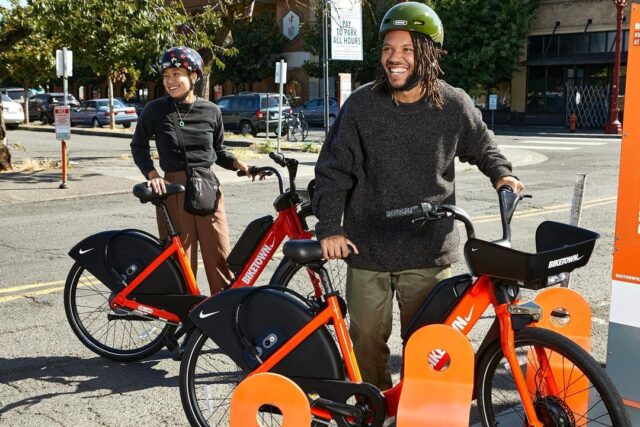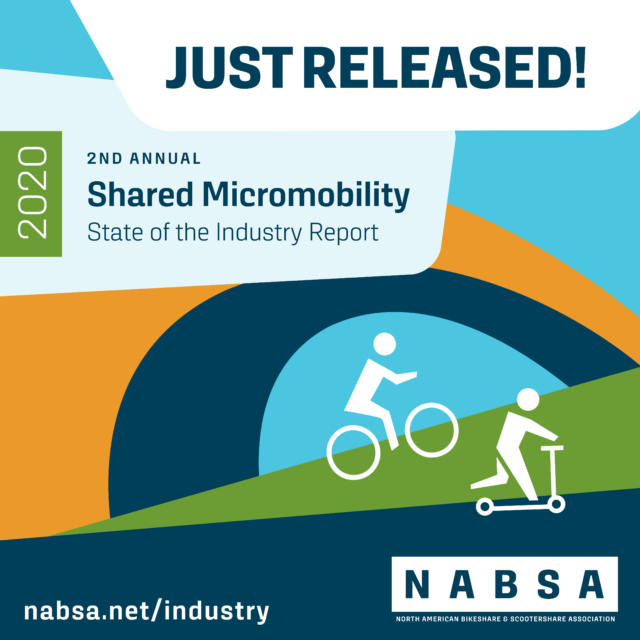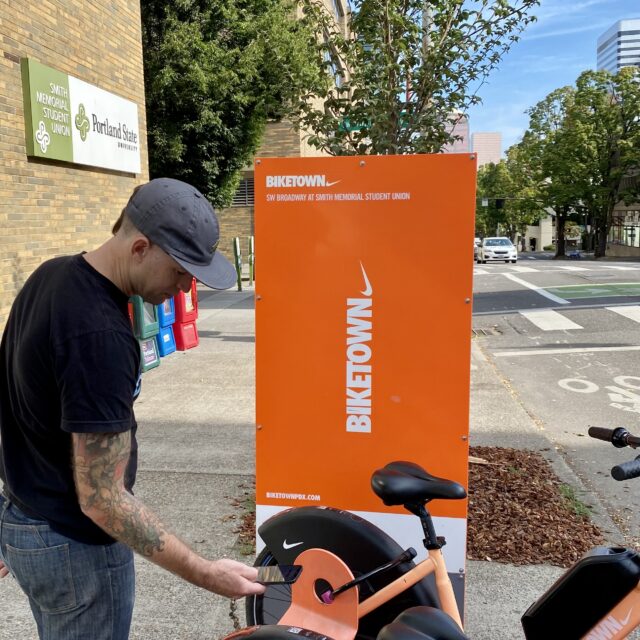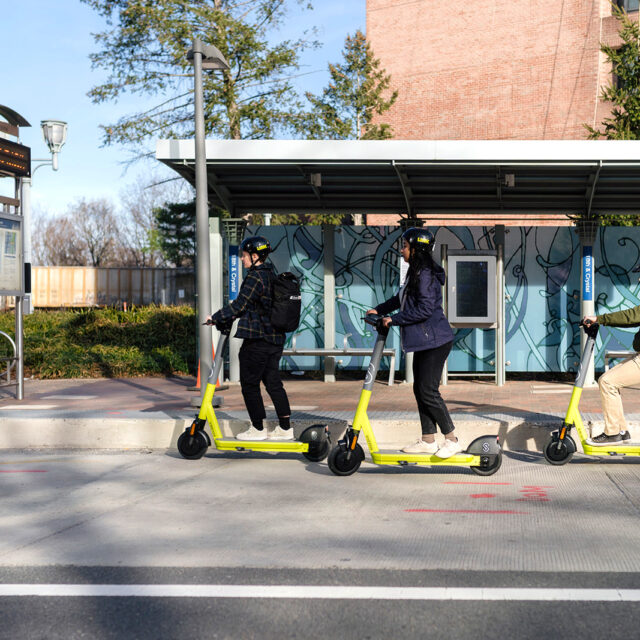Lyft’s Ridership Has Gotten More Diverse
by Kiran Herbert, Communications Manager
May 13, 2022
A new report from the shared scooter and bike company offers encouraging demographic data and 2021 ridership numbers.

At the end of April, bike and scooter company Lyft released its second annual Multimodal Report, which highlights shared micromobility trends across race, gender, and socioeconomic status. The report draws on local operating data and survey responses from thousands of riders who used Lyft-operated systems during 2021.
Overall, the report showed that Lyft’s ridership has grown, with many systems hitting record highs last year. These include Divvy in Chicago (+57%), Nice Ride in Minneapolis (+60%), and Citi Bike in New York and New Jersey (+39%). Citi Bike’s 2021 ridership surpasses that of the entire Bay Area Rapid Transportation (BART) system in the San Francisco Bay Area — it’s now the fastest-growing transportation network in New York City’s history and the largest docked bike share system in the world outside of China.
The report also emphasizes a shift in ridership demographics alongside expanded access to micromobility in historically underserved communities. Around 31% of Lyft’s bike share stations are now located in low-income areas and 55% of its 2021 riders identified as members of racial and/or ethnic minority groups, up from 53% in 2020. Importantly, rides in low-income areas increased by 65% since 2020, partially due to expansion efforts in the Divvy system and Citi Bike system that brought bike share to more communities. The report also highlights the diversity amongst riders enrolled in Lyft’s low-cost membership programs for income-qualifying residents, which differ from city to city. Compared to other bike share members, these riders are:
- 28% more likely to be women
- 26% less likely to use a personal vehicle
- 79% more likely to ride the bus
- 73% more likely to work a part-time job
- 75% less likely to have a college degree
- Take more than twice as many e-bike rides
One of Lyft’s systems, Biketown in Portland, Oregon, has undertaken a lot of work to court traditionally underserved riders and it appears to have paid off. The report states that 43% of Biketown riders identify as members of racial and/or ethnic minority groups and 16% of riders specifically identified as Black, African American, or Afro-Caribbean. This, in a city that’s 77% white and only about 6% Black.
Some of the changes Biketown has made in recent years include going all-electric and simultaneously expanding its footprint by 50%. In October 2021, the system also enlarged its low-income Biketown for All program to include college students receiving any amount of financial aid. Plus, it slashed its membership fees from $5/month (plus 5 cents a minute for ride time) to zero. In the month following these changes, enrollment in the Biketown for All program more than doubled, thanks to a combination of in-person outreach, media coverage, and email campaigns. (Both Nice Ride and Divvy also offer low-income programs that are available to students receiving Federal Student Aid.)
Additionally, as part of its two-year Living Lab pilot, Biketown is offering prescriptions for bike share to clinic patients and high school students living in zip codes that have poor health outcomes, lower income levels, and are more ethnically diverse. This year, Biketown will expand its service area into many of those same zip codes, expanding by 9 square miles and growing by 25%. In November 2021, PBOT also extended its Transportation Wallet pilot program, which subsidizes transportation costs for qualifying low-income residents by providing pre-paid cards with $250 that can be used on buses, the light rail, and bike share.
Findings from the 2022 Lyft Multimodal Report showed that 84% of Portland residents used shared micromobility to get to and from transit, just below the 88% of Lyft riders overall that use bike share as a first or last-mile solution. This last statistic underscores the important relationship between micromobility and public transit — and the need for cities and operators to continue working together to make transit integration seamless.
Going forward, Lyft plans on building on its surge in diverse ridership and overall growth through its first-ever national bike share campaign, “Yes, you are a Bike Person.” It’s a lot of fun — and a testament to the importance of making bike share inclusive and welcoming to all.
The Better Bike Share Partnership is funded by The JPB Foundation as a collaboration between the City of Philadelphia, the National Association of City Transportation Officials (NACTO) and the PeopleForBikes Foundation to build equitable and replicable bike share systems. Follow us on Facebook, Twitter and Instagram or sign up for our weekly newsletter. Got a question or a story idea? Email kiran@peopleforbikes.org.



